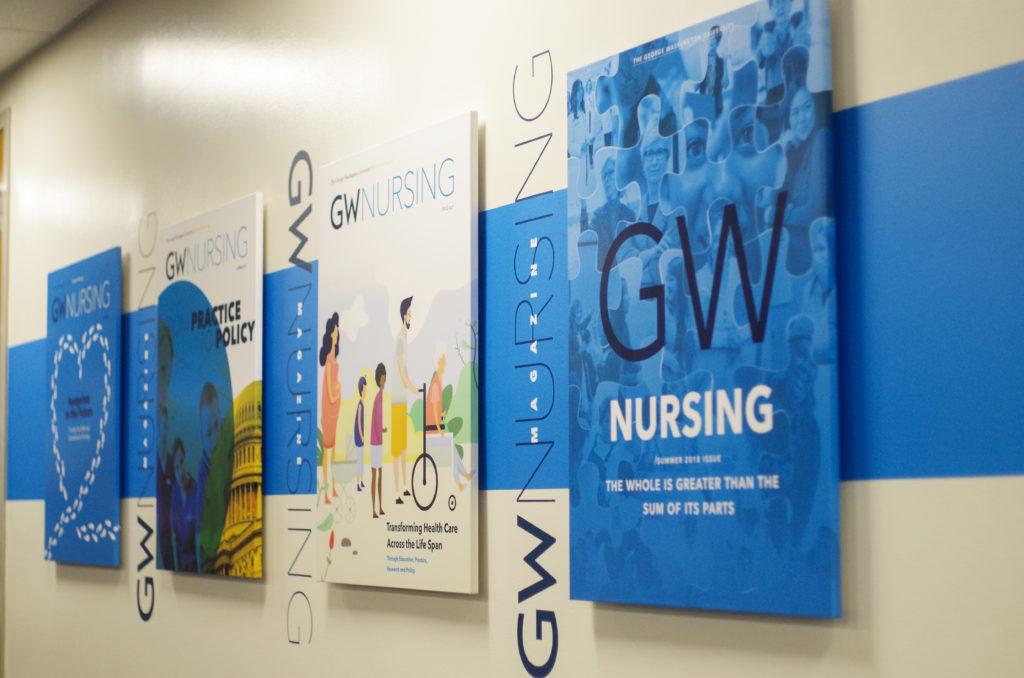A nursing professor received a $50,000 grant to study breast cancer mortality rates among black women in D.C., according to a release on the nursing school website last week.
The Clinical and Translational Science Institute at Children’s National Hospital awarded Sherrie Wallington, an assistant professor of nursing, a grant to study why black female D.C. residents screened for breast cancer don’t pursue follow-up treatment. Breast cancer mortality experts said black women face financial pressures, like requesting time off from work and access to transportation to health care facilities, which could lead to disparities in breast cancer mortality.
“Women are coming in to get screened and then, after diagnosis, we’re somehow losing them,” Wallington said in the release. “They’re not coming back for recommended treatment or follow-up.”
The research team will begin conducting focus groups and reviewing electronic health data of cancer treatment outcomes this June, according to the release. Wallington said in the release that she hopes to gain insight into why breast cancer mortality rates are higher among black women, despite the fact that white women are 20 percent less likely to undergo breast cancer screenings.
“This study may tease out factors that impede women from coming back to seek the recommended treatment after they’ve been diagnosed,” Wallington said in the release.
Wallington was not available for comment.
Breast cancer mortality experts said economic barriers could contribute to why black women don’t receive recommended follow-up treatments.
Lucio Miele, department head of the Department of Genetics at Louisiana State University, said making time to receive follow-up treatments and getting to and from appointments are problems that black women experience disproportionately to other populations and could keep them from attending follow-up appointments after the initial screening.
“For instance, to get radiation therapy you need to be able to show up for your treatments, and if you can’t because you’re working or because you don’t have money for transportation, then you’re not going to be compliant with radiation therapy,” Miele said.
He said researchers should take an interdisciplinary approach – involving experts in biostatistics, epidemiology and clinical data analysis – to study breast cancer mortality rates because several factors could contribute to the racial disparity in mortality rates.
“It’s actually a group of multiple diseases that are heterogeneous, both in terms of the types of genetic lesions that these tumors have and in terms of response to treatment and prognosis, so you can’t lump everything under one category,” he said.
Christopher Louis, an assistant professor of health law, policy and management at Boston University, said researchers should use several methods – like health data analyses, surveys and patient interviews – to gain a “comprehensive” understanding of why black women face higher breast cancer mortality rates.
He said late-stage cancer diagnoses and lower screening rates could put black women at a higher risk of mortality than other populations. Louis said factors like transportation expenses and insurance costs, which black women face at higher rates than other populations, could contribute to why some black women typically don’t go to their doctors for follow-up treatments.
A 2018 study from the American Cancer Society found that a lack of private and Medicare insurance and “unfavorable” tumor characteristics were the most important factors contributing to disparities in breast cancer mortality rates.
“Some women lack trust in clinicians or health care providers, costs of care and transportation issues are among the most commonly referenced reasons for a lack of follow-up after a positive screening for breast cancer,” he said in an email.
John Cawley, a professor of policy analysis and management at Cornell University, said researchers have proven that black women face higher rates of breast cancer mortality than other populations but have not agreed on a clear reason for the disparity.
“What’s needed is research that better explains why these disparities exist and gives us better information about how to address them, how to reduce them,” he said.




